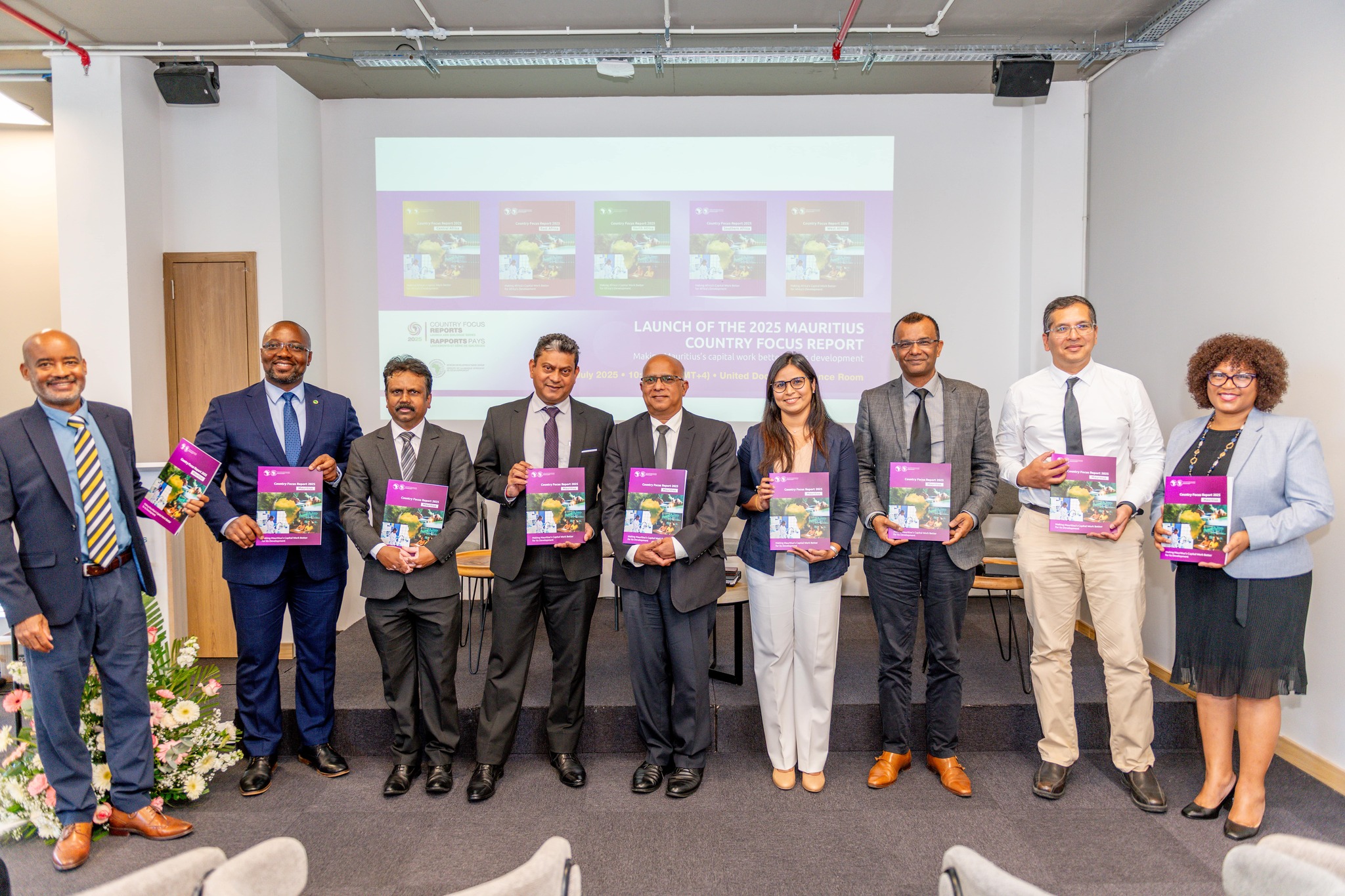AfDB Urges Mauritius to Accelerate Reforms, Unlock Capital for Growth
Delivering remarks at the launch event, Mahess Rawoteea, Deputy Financial Secretary at the Ministry of Finance, reiterated government’s commitment to bold reforms.

- Country:
- Mauritius
Mauritius has been urged to accelerate structural reforms to unlock the full potential of its national wealth and drive long-term, inclusive development. This recommendation comes from the African Development Bank (AfDB) during the launch of its 2025 Country Focus Report, themed “Making Mauritius’ Capital Work Better for its Development.”
While Mauritius has demonstrated resilience and solid economic performance—recording real GDP growth of 4.9% in 2024—the report highlights that deep-rooted structural challenges and exposure to external shocks continue to limit its trajectory toward sustainable, inclusive prosperity.
Mauritius: Strong Growth Amid Persistent Constraints
According to the AfDB report, key drivers of growth in 2024 included:
-
Construction
-
Financial services
-
Trade
-
Tourism, with 1.38 million arrivals (97% of pre-pandemic levels)
The report also notes that household consumption and investment were primary demand-side growth contributors.
However, despite this progress, Mauritius faces enduring challenges such as skills mismatches, low female labor participation, youth emigration, and a rapidly aging population. These constraints are compounded by climate vulnerability and the rising costs of energy and imports.
Tapping into Untapped Wealth
A major insight of the report is that Mauritius has substantial untapped capital:
-
As of 2020, the country’s total national wealth was estimated at over $96 billion, more than six times its GDP.
-
This includes human, produced, natural, and financial capital.
-
Its Exclusive Economic Zone (EEZ) of 2.3 million km² offers immense opportunity for blue economy development.
“Mauritius must better mobilize its vast domestic capital stock—including natural, human, and financial capital—to transition to higher, more sustainable growth,” said Prof. Kevin Urama, AfDB’s Chief Economist and Vice President for Economic Governance and Knowledge Management.
Institutional and Budgetary Reforms Underway
Delivering remarks at the launch event, Mahess Rawoteea, Deputy Financial Secretary at the Ministry of Finance, reiterated government’s commitment to bold reforms.
“We are confident that the structural reforms outlined in the 2025–2026 Budget Speech will unlock significant investments, particularly in renewable energy, and contribute to higher GDP growth.”
Rawoteea also highlighted the following reform priorities:
-
Institutional streamlining to improve efficiency
-
Establishment of a Climate Finance Unit
-
Improved tax administration
-
Enhanced transparency and ease of doing business
-
Environmental preservation, including action on beach erosion
“We are undertaking institutional reforms to better mobilize domestic and foreign capital and promote sustainable development,” Rawoteea said.
Sectors with Transformative Potential
The report and discussion pointed to two strategic growth sectors:
-
Renewable Energy: Mauritius aims to reduce its reliance on fossil fuel imports, cut carbon emissions, and lower energy costs through greater investment in solar, wind, and ocean-based energy sources.
-
Blue Economy: With one of the largest EEZs among small island nations, Mauritius has immense potential in fisheries, marine biotechnology, sustainable tourism, and deep-sea mining, provided it is managed sustainably.
Unlocking Capital Through Policy and Institutional Reform
Wolassa Kumo, the Bank’s Principal Country Economist for Mauritius, presented the report’s core findings. He emphasized that mobilizing domestic resources and enhancing capital efficiency are essential for resilience and growth.
The report recommends:
-
Strengthening institutions and regulatory frameworks
-
Improving public sector efficiency
-
Enhancing data and transparency in capital use
-
Promoting financial inclusion and digital finance adoption
-
Deepening regional trade integration
Panel Highlights: Mobilising Capital Across Sectors
A high-level panel discussion brought together experts from across government, business, and civil society to explore practical ways of unlocking Mauritius’ capital assets.
Panelists included:
-
Dr. Zyaad Boodoo (Ministry of Environment): Emphasized natural capital management and climate resilience.
-
Sanjev Bhonoo (Statistics Mauritius): Highlighted data gaps in national wealth accounting and the need for better metrics.
-
Ricaud M. Auckbur (Ministry of Education): Discussed upskilling, education reform, and aligning human capital with industry demands.
-
Zaahira Ebramjee (Business Mauritius): Advocated for private sector partnerships in sustainable infrastructure and clean tech.
-
Vikram Ramful (Stock Exchange of Mauritius): Outlined capital market innovations and regulatory modernization to attract investment.
Nontle Kabanyane, AfDB’s Principal Country Programme Officer, moderated the session, noting that Mauritius could become a model for small island developing states (SIDS) in capital optimization and sustainable development.
Call to Action: Reducing External Dependence
Prof. Urama concluded by stressing that Africa as a whole can transform itself by managing its own assets efficiently and reducing overdependence on external aid.
“If Africa commits to investing in its own development, we can harness our enormous capital—our people, our land, our oceans, and our knowledge—for transformative growth.”
As Mauritius moves forward with its reform agenda, the AfDB report offers a roadmap to reignite productivity, attract sustainable investment, and ensure that capital—both tangible and intangible—is fully leveraged for national development.
ALSO READ
With sustainable development under threat, Sevilla summit rekindles hope and unity
IDB and EIB Forge New Deal to Boost Sustainable Development in LAC
BRICS Leaders Urge Enhanced Climate Finance for Developing Nations
Fintechs Urged to Expand Offline Payment Solutions for Financial Inclusion
Fintechs Urged to Lead Revolution in Offline Payment Solutions for Financial Inclusion










